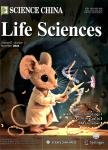Role of iron in host-microbiota interaction and its effects on intestinal mucosal growth and immune plasticity in a piglet model
作者机构:Key Laboratory of Agro-Ecological Processes in Subtropical RegionHunan Research Center of Livestock&Poultry SciencesSouth-Central Experimental Station of Animal Nutrition and Feed Science in Ministry of AgricultureInstitute of Subtropical AgricultureChinese Academy of SciencesChangsha 410125China Hunan International Joint Laboratory of Animal Intestinal Ecology and HealthLaboratory of Animal Nutrition and Human HealthCollege of Life SciencesHunan Normal UniversityChangsha 410081China
出 版 物:《Science China(Life Sciences)》 (中国科学(生命科学英文版))
年 卷 期:2023年第66卷第9期
页 面:2086-2098页
核心收录:
学科分类:090502[农学-动物营养与饲料科学] 0905[农学-畜牧学] 09[农学]
基 金:supported by the Natural Science Foundation of Hunan Province (2020JJ5635) Youth Innovation Promotion Association of Chinese Academy of Sciences (2022370) the National Center of Technology Innovation for pigs,the Science and Technology Program of Hunan Province (2020NK2013, 2020GK4095) Outstanding Youth Fund of Hunan Natural Science Foundation (2021JJ20045) the Key R&D Program of Guangxi Province (2021AB20063) the National Natural Science Foundation of China (32130099) the China Agriculture Research System of MOF and MARA (CARS-35)
主 题:iron deficiency iron-microbial interactions m TOR signaling immune regulation
摘 要:Iron is an essential trace element for both the host and resident microbes in the gut. In this study, iron was administered orally and parenterally to anemic piglets to investigate the role of iron in host-microbiota interaction and its effects on intestinal mucosal growth and immune plasticity. We found that oral iron administration easily increased the abundance of Proteobacteria and Escherichia-Shigella, and decreased the abundance of Lactobacillus in the ileum. Furthermore, similar bacterial changes, namely an increase in Proteobacteria, Escherichia-Shigella, and Fusobacterium and a reduction in the Christensenellaceae_R-7_group,were observed in the colon of both iron-supplemented groups. Spearman s correlation analysis indicated that the changed Fusobacterium, Fusobacteria and Proteobacteria in the colon were positively correlated with hemoglobin, colon and spleen iron levels. Nevertheless, it was found that activated m TOR1 signaling, improved villous height and crypt depth in the ileum,enhanced immune communication, and increased protein expression of IL-22 and IL-10 in the colon of both iron-supplemented groups. In conclusion, the benefits of improved host iron outweigh the risks of altered gut microbiota for intestinal mucosal growth and immune regulation in treating iron deficiency anemia.



